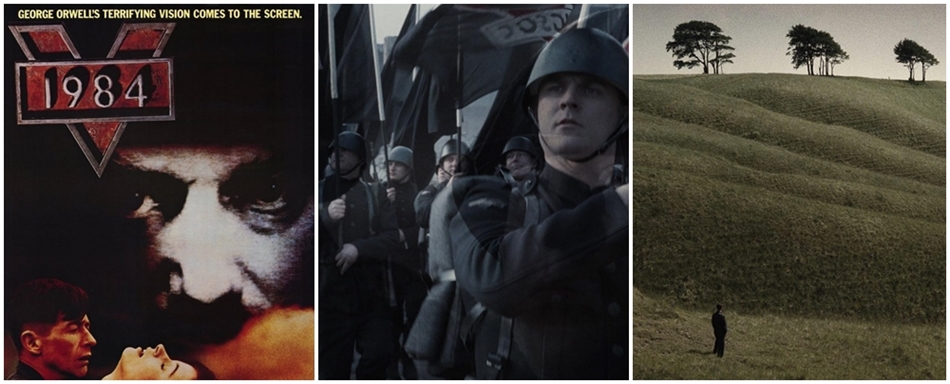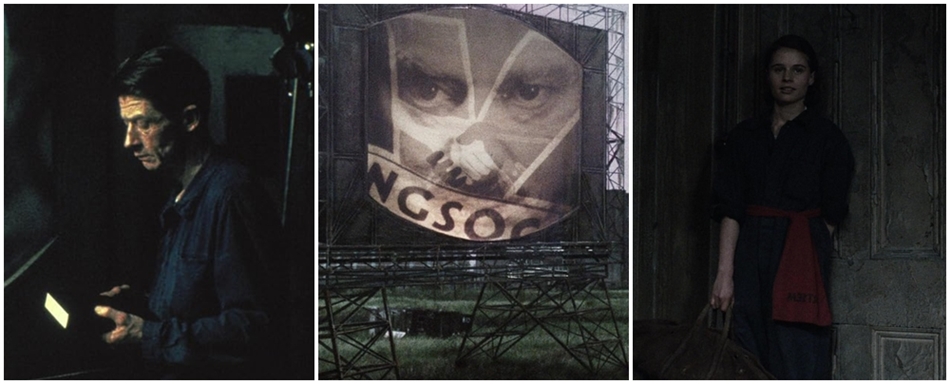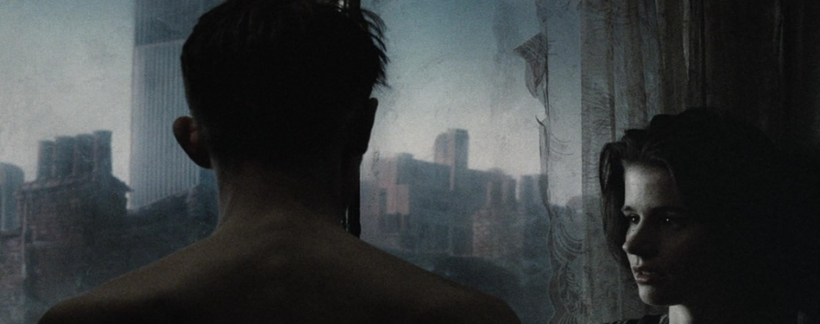A review of Michael Radford’s film 1984.

Review Number: 5
Review Date: 30 October 2024
Title: 1984
Director: Michael Radford
Stars: John Hurt, Suzanna Hamilton, Richard Burton
Country: United Kingdom
Release Date: 1984
Genre: Dystopian Sci-Fi, Drama
“April the 4th, 1984. To the past, or to the future. To an age when
thought is free. From the Age of Big Brother, from the Age of the
Thought Police, from a dead man… greetings.”
Some films are able to capture the heart and soul of a great novel. The director, blessed with wisdom and intelligence, stays true to the essence of the original material. They know the writer has crafted something special, which merely needs minor alterations to work on the silver screen. I can think of the memorable movies The Night of the Hunter (1955), Far from the Madding Crowd (1967) and Catch-22 (1970) as prominent examples. No doubt, you’ll have others in mind.
Director Michael Radford is no exception with his brilliant adaptation of George Orwell’s 1984. Released 40 years ago this month, the film is unremittingly bleak in its portrayal of a totalitarian future.
Even if you haven’t read Orwell’s influential novel, you’ll probably be familiar with the themes. Published in 1949, and also referred to as Nineteen Eighty-four, Encyclopaedia Britannica explains: “The book is set in 1984 in Oceania, one of three perpetually warring totalitarian states. Oceania is governed by the all-controlling Party, which has brainwashed the population into unthinking obedience to its leader, Big Brother. The book’s hero, Winston Smith, is a minor party functionary living in a London that is still shattered by a nuclear war that took place not long after World War II. He belongs to the Outer Party, and his job is to rewrite history in the Ministry of Truth, bringing it in line with current political thinking. However, Winston’s longing for truth and decency leads him to secretly rebel against the government. He embarks on a forbidden affair with Julia, a like-minded woman, and they rent a room in a neighbourhood populated by Proles.”
Orwell wrote his novel in the 1940s amidst a war-ruined Europe. In turn, the movie’s use of subdued colours, gloom, grime and battered buildings evokes the spirit of that time. Radford’s film has aged well because this style of science fiction never needed to rely on incredible special effects. The 1984 future is not bright, because all is blight.
1984 is of course a timeless warning about the dangers of totalitarianism. Orwell had seen at first hand the menace of Nazism and Stalinism. Let’s face it, the threat of tyranny has still not disappeared from this planet, and, unless there is a new Age of Enlightenment, we seem to be thousands of years from it ever happening.
Ideas are important, but a movie without characters of consequence may falter. John Hurt and Suzanna Hamilton excel as Winston and Julia, respectively. It’s hard to imagine someone offering better performances in these roles. Their journey is a tragic one, from fear to lust, to love and rebellion, and then elsewhere. At each stage, they never fail to convey the humanity and drama.
In his last movie role, Richard Burton plays O’Brien, the Inner Party member that Winston encounters. It’s a fitting end to a marvellous career. Burton was in poor health during the making of the film, but this has no ill effect on the movie’s quality. Burton was tired and world-weary, and so is the fictional O’Brien.
Laws and leaders should be respected, up to a point. The book and movie make it clear that people should question authority and fight for the right to free speech.
1984 is powerful, relevant, and a film worthy of your time. However, the viewer needs to be in the right mood for something so intense and grim.
“Obedience is not enough. Power is inflicting pain and humiliation.
Otherwise, you cannot be sure. Power is tearing human minds apart and
putting them together again in new shapes of your own choosing.”

